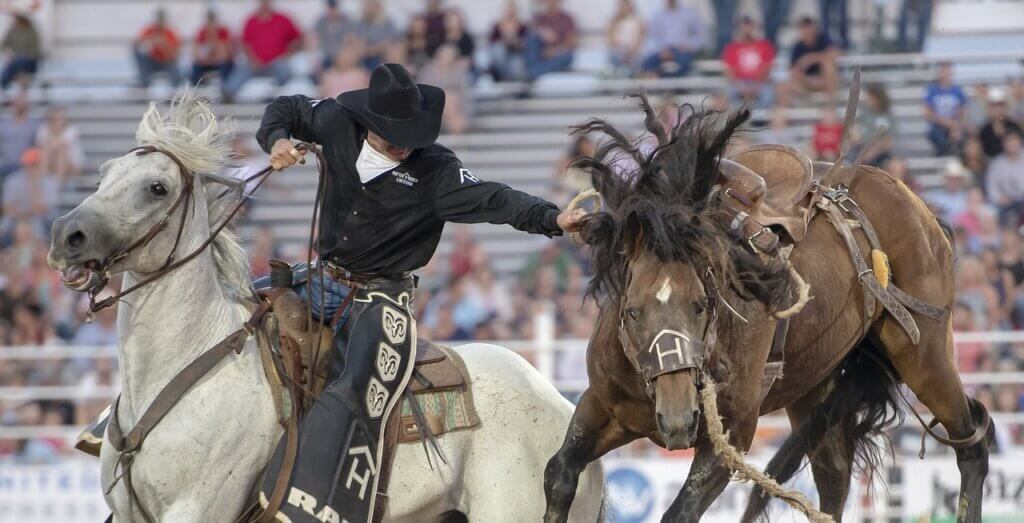You may have heard about Xiaolang Zhang. He’s the Apple engineer who was about to board a plane to China before being arrested by FBI agents and charged with theft of trade secrets under Title 18, United States Code, Section 1832. His new employer, Xpeng Motors, denied any knowledge of trade secret theft.
Rather than recount the details reported by the press, this week on Five Minute Law we’re traveling into the future to hear opening statements in the civil lawsuit to be filed in federal court under the Defend Trade Secrets Act.
SCENE: Courtroom, Robert F. Peckham Federal Building & United States Courthouse, San Jose, California, USA.
THE COURT: Ok, we’re on the record on July 14, 2020, in Case No. 18-CV-78745, Apple, Inc. v. Xpeng Motors. Ladies and gentlemen of the jury, we are now going to hear opening statements from the lawyers. Ms. Cunningham, are you ready to proceed?
MS. CUNNINGHAM: Yes, Your Honor.
Ladies and gentlemen, this is a case about cheating. Not cheating at sports or cheating on your spouse, but cheating at business. Specifically, the business of self-driving car technology. You all know my client, Apple. It’s the best-known technology company in the world. It got there through hard work and innovation.
But some companies want to take shortcuts. Rather than doing the hard work to develop their own technology, they want to cheat and ride the coattails of others. The evidence will show that the defendant, Xpeng Motors, is one of those companies.
Xpeng was founded in 2014 in Guangzhou, China to develop electric self-driving vehicles. It is backed by some of the biggest Chinese companies in the world. It has a lot of smart people working for it, but in 2016 Xpeng decided that wasn’t enough. They needed a boost.
Now you all know about the iPhone and the MacBook, but that’s not all that Apple does. Apple also has a division working round the clock to develop software and hardware for autonomous vehicles. That means self-driving cars.
Back in 2016, Apple had made general statements to the press about self-driving car technology, but the details were a closely guarded secret. The code name was Project Golden Delicious.
This project involved thousands of engineers. One of those engineers was Mr. Xiaolang Zhang. Apple hired Mr. Zhang in December 2015 as a hardware engineer on the Compute Team, where he designed and tested circuit boards to analyze sensor data for the project.
Apple is very serious about making sure people like Mr. Zhang don’t publicize Apple’s secret technology and future product plans. The evidence will show that Apple takes extensive efforts to protect its trade secrets.
Before starting, corporate employees must sign an Intellectual Property Agreement that prohibits any unauthorized use or transmission of Apple’s intellectual property. Apple provides employees annual training on the importance of protecting its confidential information. Mr. Zhang signed one of these agreements and attended the annual training, so he was fully aware of his obligations to protect Apple’s intellectual property.
Apple was especially serious about protecting the secret technology it was developing in Project Golden Delicious.
Apple had several layers of access control for project information. First, Mr. Zhang had to log in to the company’s virtual private network, which they call the “VPN.” Next, another employee had to grant him disclosure rights for the project.
Then, Apple used an internal software tool to manage requests for project disclosure and maintain a record of all disclosures. For Mr. Zhang to get access to the project, another employee had to “sponsor” him and give a business justification. A manager had to review and approve that request. So, access was strictly on a “need to know” basis.
After granting Mr. Zhang general access to the project, Apple then gave him even higher access to the secret project database. He worked on the project for about a year and a half, learning about Apple’s secret autonomous vehicle technology the whole time.
This was a huge privilege for Mr. Zhang. Just imagine having the keys to the vault where you could find top-secret technology for the most cutting-edge industry in the world.
But what did Mr. Zhang do with this privilege? The evidence will show that he betrayed Apple. And he did not act alone.
Sometime prior to April 2018, Mr. Zhang got in touch with Xpeng Motors. We don’t know exactly when or where, because Mr. Zhang pled the Fifth.
MR. CROCKETT: Objection! Your Honor, may we approach? [bench conference ensues with animated body language]
MS. CUNNINGHAM: As I was saying, we know Mr. Zhang got in touch with Xpeng Motors at some time before April 2018. You see, Mr. Zhang took advantage of Apple’s generous paternity leave policy from April 1 to April 28, 2018. While on paternity leave, he traveled to China. Funny thing is, that’s where Xpeng Motors has its headquarters.
Then on April 30, 2018, shortly after returning from China, Mr. Zhang suddenly announced—these announcements are always “sudden”—that he was moving back to China to be with his mother who was in poor health. Oh, and one more thing. He told his immediate supervisor at Apple he was going to work for Xpeng Motors.
You can imagine the alarm bells this set off at Apple. Mr. Zhang’s supervisor called in Apple’s New Product Security Division, who met with Mr. Zhang and took custody of his two iPhones and his MacBook laptop. Apple then immediately disabled his access to Apple’s network and offices.
Apple did a forensic analysis of Mr. Zhang’s devices, and guess what they found? Just days before Mr. Zhang announced he was leaving, his Apple network activity increased exponentially. It included both bulk searches of the secret project database and targeted downloading of specific files.
These files included technical documents on Apple prototypes and prototype requirements, such as power requirements, low voltage requirements, battery system, and drivetrain suspension mounts. You will hear Apple’s expert witness testify that these secret technical documents would have great independent economic value for a competitor in the self-driving car field.
But that’s not all. You will see security camera video showing Mr. Zhang on Apple’s campus at 9:14 p.m. on the evening of Saturday, April 28, 2018. You’ll see him enter Apple’s autonomous vehicle software and hardware labs and leave the building less than an hour later carrying a computer keyboard, some cables, and a large box.
Was he just working late, burning the midnight oil? Keep in mind he was on paternity leave at this time, and he announced his resignation just two days later. The evidence will make it pretty obvious what he was doing.
But don’t take my word for it. You will hear testimony that Mr. Zhang was interviewed both by Apple security and the FBI. And he admitted it. He admitted pursuing employment with Xpeng Motors while still employed by Apple. After initially denying it, he admitted he was on the Apple campus on April 28. He admitted taking online data from the secret project database while on paternity leave.
It gets worse. Mr. Zhang admitted “air-dropping” the data he took from Apple’s system on to his wife’s laptop computer. When Apple examined that computer, it found that a folder titled “RECENT” contained 40 Gigabytes worth of data, and the laptop’s system event logs reflected “Air Drop” activity on April 29 and 30. And 60 percent of the data on the computer came from Apple.
One of the files Mr. Zhang put on his wife’s laptop was especially important. We call it the “X-File.” The X-File contained top-secret electrical schematics for one of the circuit boards Apple was developing for the project.
Now, why do you think Mr. Zhang was doing all this? Was he going to use all this secret technology by himself? That doesn’t make any sense.
The evidence will show that immediately after leaving Apple, Mr. Zhang went to work for Xpeng Motors at its headquarters in Palo Alto. Then on July 7, he bought a last-minute round-trip ticket to China. And he might have gotten away with it too, if FBI agents hadn’t arrested him just after he got through the security checkpoint at Terminal B.
After you hear all the evidence, the inescapable conclusion will be that Mr. Zhang was working with Xpeng Motors to take Apple’s secret technology.
And that’s cheating. Thank you.
THE COURT: Thank you, Ms. Cunningham. Mr. Crockett, are you ready to proceed? . . . Mr. Crockett?
MR. CROCKETT: Oh, sorry. Yes, Your Honor.
Ladies and gentlemen of the jury, I’m impressed. That was quite an opening by Ms. Cunningham. I don’t know if I can compete with that. I mean, I didn’t go to Harvard like she did. I’m just an old trial lawyer.
But I tell you what. These old hearing aids still work pretty good, and I was using them while Ms. Cunningham was talkin’. And it’s not what I heard that’s important, it’s what I didn’t hear.
Let me give y’all an example. I didn’t hear her say anything about having any evidence that Xpeng Motors was in cahoots with Mr. Zhang when he did all that sneaky stuff during his paternity leave. Did you hear her say anything about any evidence that anybody at Xpeng Motors put Mr. Zhang up to it? I didn’t.
You know what else I didn’t hear? I didn’t hear anything about any evidence that Mr. Zhang ever—ever—gave any of those top-secret Apple documents to anyone at Xpeng Motors.
Now, when we get to the end of this trial, you’re going to get some papers from the judge that we call a charge. And that charge is going to have a lot of complicated instructions about stuff like “misappropriation.”
Now, back when I was flying helicopters in Vietnam, we didn’t use a lot of fancy words like “misappropriation,” but I know what stealing is. And that’s basically what misappropriation means: stealing. And I’ll make you a bet. I bet during this whole trial you won’t hear any evidence that my client, Xpeng Motors, stole anything from Apple.
You know what else you’re not going to hear? I’ll bet you dollars to donuts you won’t hear any evidence that Apple lost any money because of anything Xpeng Motors did. Now they’ve got this nice man with a Ph.D who’s going to come in and say there’s no way Xpeng could have developed its self-driving car technology without Apple’s schematics. So when they don’t have any real evidence, they’re going to rely on some professor getting paid $750 an hour. Well, we have a saying back in Texas where I grew up: that dog won’t hunt.
Now, I’ll level with you on something. You’re going to see some internal emails from Xpeng Motors talking about how they’re going to make their self-driving car technology more like Apple’s and beat Apple at its own game. But that’s not stealing, that’s competition. That’s the American way. If you can build a better mouse trap, you get the cheese.
Or the apple. [wink]
THE COURT: Thank you, Mr. Crockett. Ms. Cunningham, call your first witness.
*Update* You can read the indictment of Zhang here.
_____________________

Zach Wolfe (zach@zachwolfelaw.com) is a Texas trial lawyer who handles non-compete and trade secret litigation at Zach Wolfe Law Firm (zachwolfelaw.com). Thomson Reuters has named him a Texas “Super Lawyer”® for Business Litigation every year since 2020.
He made up the names “Project Golden Delicious” and “X-File,” and the stuff about what Xpeng Motors did. The rest of the facts are taken from press reports and the FBI agent affidavit attached to the Criminal Complaint in U.S. v. Xiaolang Zhang, No. CR-18-70919, U.S. District Court for the Northern District of California.




Leave a Comment